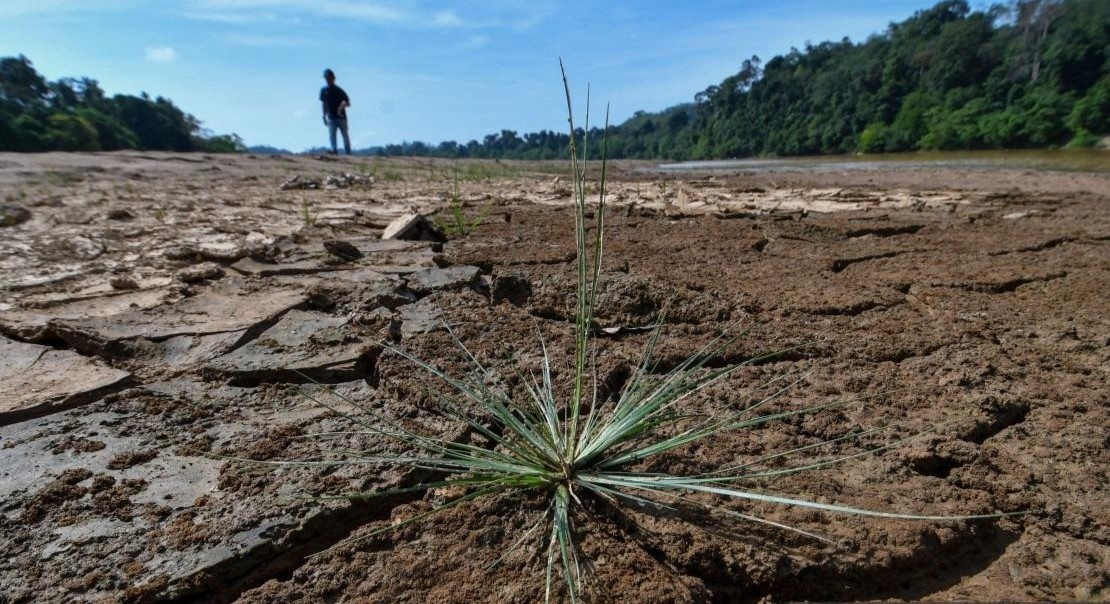KUALA LUMPUR – Malaysia has been grappling with the ‘unusual’ effects of an atypical El Niño phenomenon in recent years, including heatwaves, haze, altered rainfall patterns, and significant repercussions on local agriculture, according to agronomists.
Datuk Abdul Shukor Juraimi, an agronomy professor at Universiti Putra Malaysia (UPM), highlighted that while El Niño typically occurs every two to seven years, recent years have witnessed a shorter cycle of two to three years, attributed to climate change and global warming.
Traditionally regarded as Malaysia’s rice bowl, the northern region is particularly vulnerable to scorching weather conditions.
Shukor noted that during El Niño, the minimum temperature in northern states like Kedah, Kelantan, Perlis, and Perak can reach 35°C to 37°C, up from the usual 33°C.
“Water scarcity exacerbates the situation, significantly affecting local plantations, especially rice production,” he added.

Shukor, who also heads the National Professor’s Council’s agriculture and food security cluster, believes that adequate water supply is critical to preserving paddy plantations during such weather extremes.
However, crops that require cooler temperatures and consistent humidity, such as strawberries in Cameron Highlands, are particularly affected.
Highlighting the imminent challenges, Shukor emphasised the importance of taking proactive measures to mitigate the impact of climate change on agricultural production, particularly rice cultivation.
“Of course, it will have an impact on agricultural production and reduce the quality of rice. After flowering, the milk stage, in which the grains are filled, requires adequate water; otherwise, the grain will be empty.
“This April, certain areas of the country will begin cultivating paddy, and this (current climate) will affect local rice production,” he said.
Securing local rice production
Shukor proposed leveraging research and development (R&D) initiatives in paddy cultivation from research institutes and universities.
He advocated for the use of researched and certified paddy varieties, which are known for producing high yields with less water, to boost rice production nationwide.
He also recommended transitioning from the conventional open irrigation system to a piped system to curb water loss through evaporation, albeit acknowledging the cost implications.
While acknowledging the expense, Shukor suggested emulating neighbouring rice-exporting countries like Indonesia and Thailand, which allocate vast hectares to paddy cultivation, aiming to augment Malaysia’s local white rice production.
Agricultural productivity and economy
Datuk Mad Nasir Shamsudin, an agricultural economics analyst from UPM, underscored the pivotal role of climate in determining agricultural productivity, food security, and the broader agricultural economy. He emphasised that, despite technological advancements, climate remains a primary determinant.
Nasir highlighted the multifaceted impacts of climate change on agriculture, encompassing changes in crop yields, water availability, pest and disease dynamics, and other biophysical factors. These, he stressed, cascade through socio-economic systems, exacerbating poverty and straining public finances.

“Such biophysical changes propagate through a number of components of the socio-economic system and ultimately impact the livelihoods of people in a variety of ways,” he said.
Nasir underscored that declining incomes from the agriculture sector will increase poverty and reduce the ability of households to invest for a better future.
Moreover, he said that climate change will impact public finances on a national scale by reducing income and increasing spending demands.
“Malaysia, being a food deficit country with a net import of RM31 billion in 2022, requires a policy framework that deals with the effect of climate change on food production, consumption, and trade.
“This framework is needed to provide practical tools to develop effective and efficient policies to deal with climate change challenges that include both adaptation and mitigation strategies,” he said.
To overcome this, adaptation strategies should be taken into consideration by the government to make production systems more resilient, he stressed.
“These include improving crop varieties to increase resilience in a changing climate, altering the timing and location of cropping activities, enhancing water use efficiency and storage, and diversifying farming activities or increasing off-farm income,” he said.
Apart from the government, the public also should support R&D for farm-level adaptation, he said, adding that the effects of climate change must be integrated into extension programmes and economic development planning.
However, the strategies should not distort agricultural markets in ways that negatively affect the production and trade of farm products domestically and internationally, he said. – April 20, 2024


